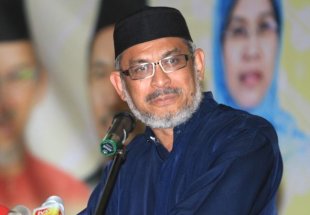The failure of the prosection to call Deputy Superintendent Musa Safri and the failure of the trial judge to consider the notice of alibi were among the main reasons for the acquittal of two former policemen in the murder of Mongolian Altantuya Shaariibuu.
In the 47-page written judgment released this morning, the three-man Court of Appeal bench ruled the failure to call Musa proved fatal to the prosecution's case as he could have unravelled the narrative of the prosection's case.
The two former police commandos, chief inspector Azilah Hadri and corporal Sirul Azhar Umar, were acquitted on Friday for the murder of Altantuya on October 19, 2006.
The judgment written by Court of Appeal judge Datuk Tengku Maimun Tuan Mat also pointed to discrepancies in the affidavit by political analyst Abdul Razak Baginda and Sirul's testimony in court pertaining to Musa's involvement in the case.
"It must not be overlooked that this ugly and horrendous episode started with the request by Razak to Musa before Azilah and Sirul came into the picture.
"The evidence established that Azilah and Sirul's task was to patrol the vicinity of Razak's house and their presence there that night was upon the request of Razak to Azilah," Tengku Maimun said in the judgment.
Only Musa could have unravelled this, she added.
At the time, Musa was the aide-de-camp of the then Deputy Prime Minister Datuk Seri Najib Razak.
On Azilah's acquittal, the Court of Appeal ruled that trial judge Datuk Mohd Zaki Md Yassin had failed to consider the notice of alibi which revealed that Azilah could not have been at two places at the same time on the night of Altantuya's murder.
The Court of Appeal said the call logs of telecommunication companies which were tendered by the prosecution were aimed to track Azilah’s movement on the day Altantuya was murdered.
According to the exhibits, Azilah was at Pekan Subang at 10.15pm and at Kampung Melayu Subang at 10.19pm.
However, the police station diary at Bukit Aman indicated that Azilah was there collecting his weapon, a Glock EAH 387, and two bullet magazines at 10.18pm.
He had then headed to Putrajaya for escort duty with Najib.
The investigating officer in Altantuya's murder case, ASP Tonny Lunggan, had testified in the trial that the station diary was true and accurate.
This, the Court of Appeal held, had cast doubts on the accuracy of the call logs.
“The trial judge should have directed his mind to the two contradicting sets of evidence and in failing to do so had misdirected himself.
"We do not find it anywhere in the judgment that the trial judge had considered whether the station diary and the evidence that Azilah was at Wangsa Maju and at Bukit Aman at the material time, shows that by reason he cannot be or unlikely to be at Puncak Alam.
“In the circumstances, the judge had misdirected himself by way of non-direction in failing to consider the evidence,” she said, referring to the trial judge’s failure to consider the defence of alibi.
She said the call logs and coverage prediction were important evidence to establish Azilah’s presence at the crime scene.
“It is essential for the learned judge to address his mind to the challenge raised by the defence on the exhibits and to make a finding whether there was in fact an alteration or tampering of the data and whether the authenticity of the data was questionable or otherwise,” she said.
“Regrettably, the judge failed to do this, which amounts to serious misdirection rendering the said exhibits unsafe to be relied upon.”
The court had also said the trial judge should have made a finding on the connection between the explosives and the two policemen and his failure to address this missing link resulted in yet another misdirection.
Tengku Maimun added that the three-man Court of Appeal bench could not say if a reasonable tribunal, properly directed, would have convicted the appellants on available evidence.
"The court below had ignored and overlooked salient facts and evidence favourable to the appellants which resulted in serious and substantial miscarriage of justice,” she said.
“The cummulative effects of these non-directions rendered the conviction unsafe. We are conscious that a heinous crime has been committed but where the guilt of the appellants had not been satisfactorily proved, we are constrained to give the benefit of doubt to them.
“We unanimously allow both appeals. Conviction and sentence by the High Court is set aside, the appellants are accordingly acquitted and discharged.









